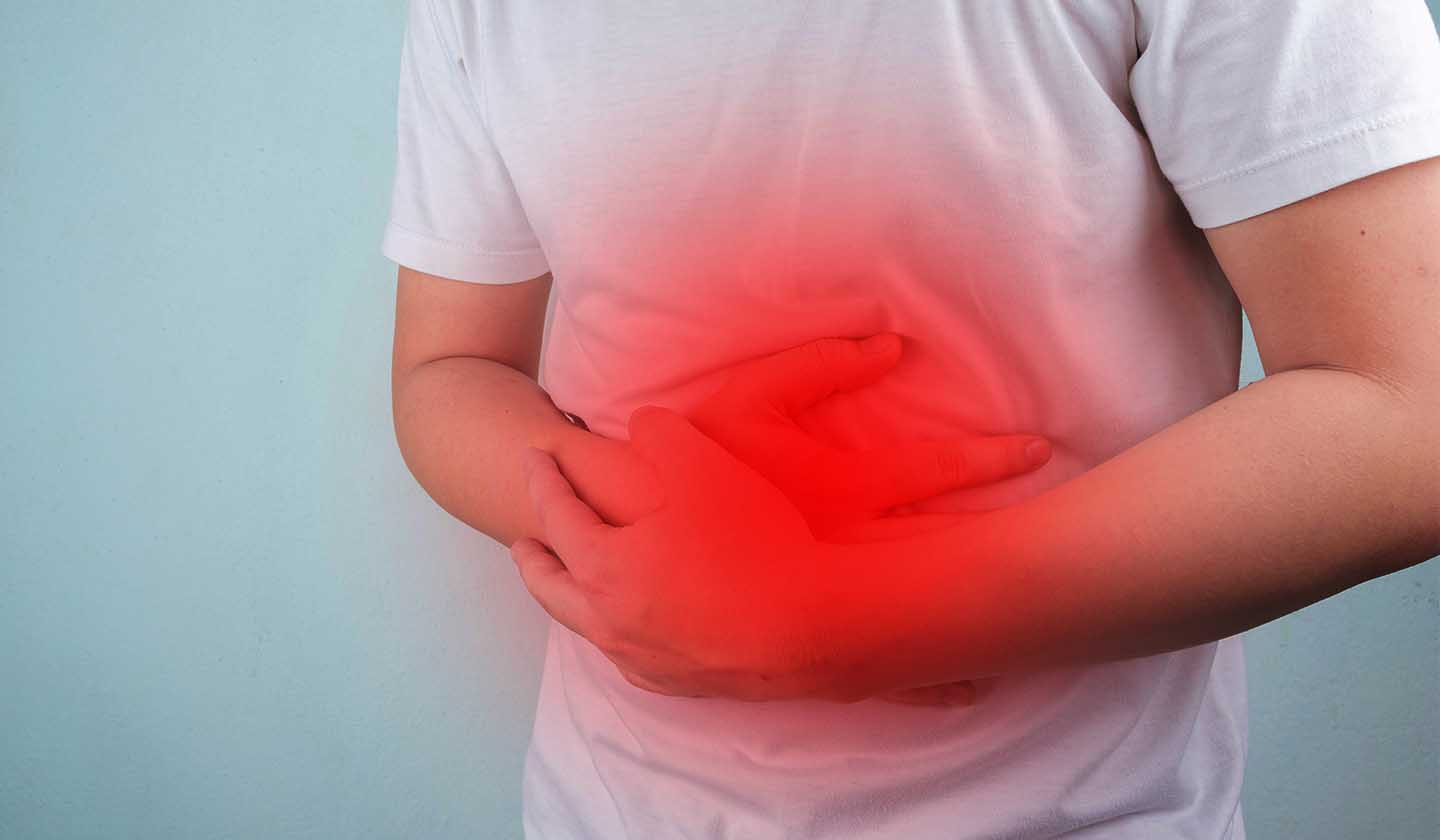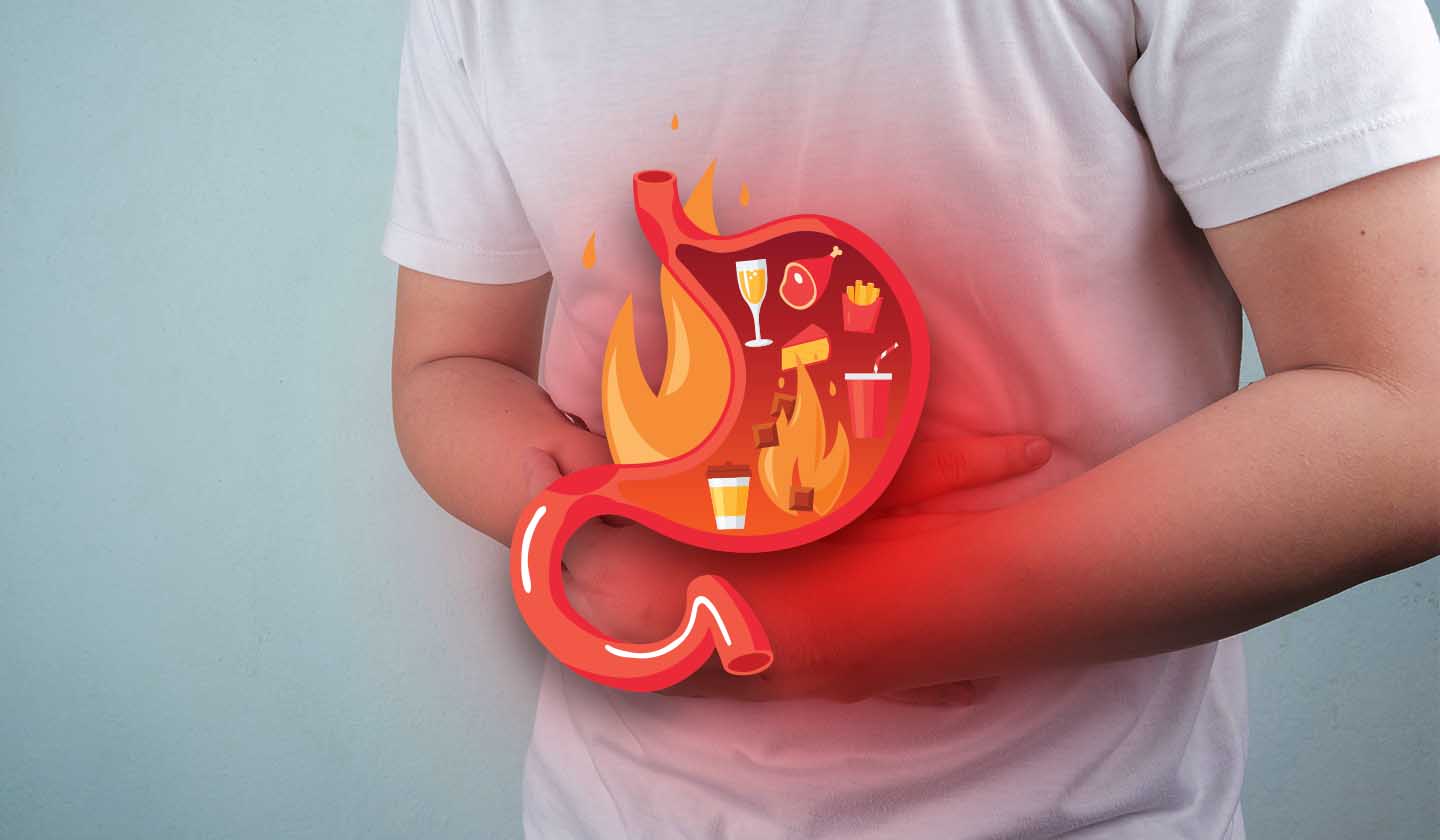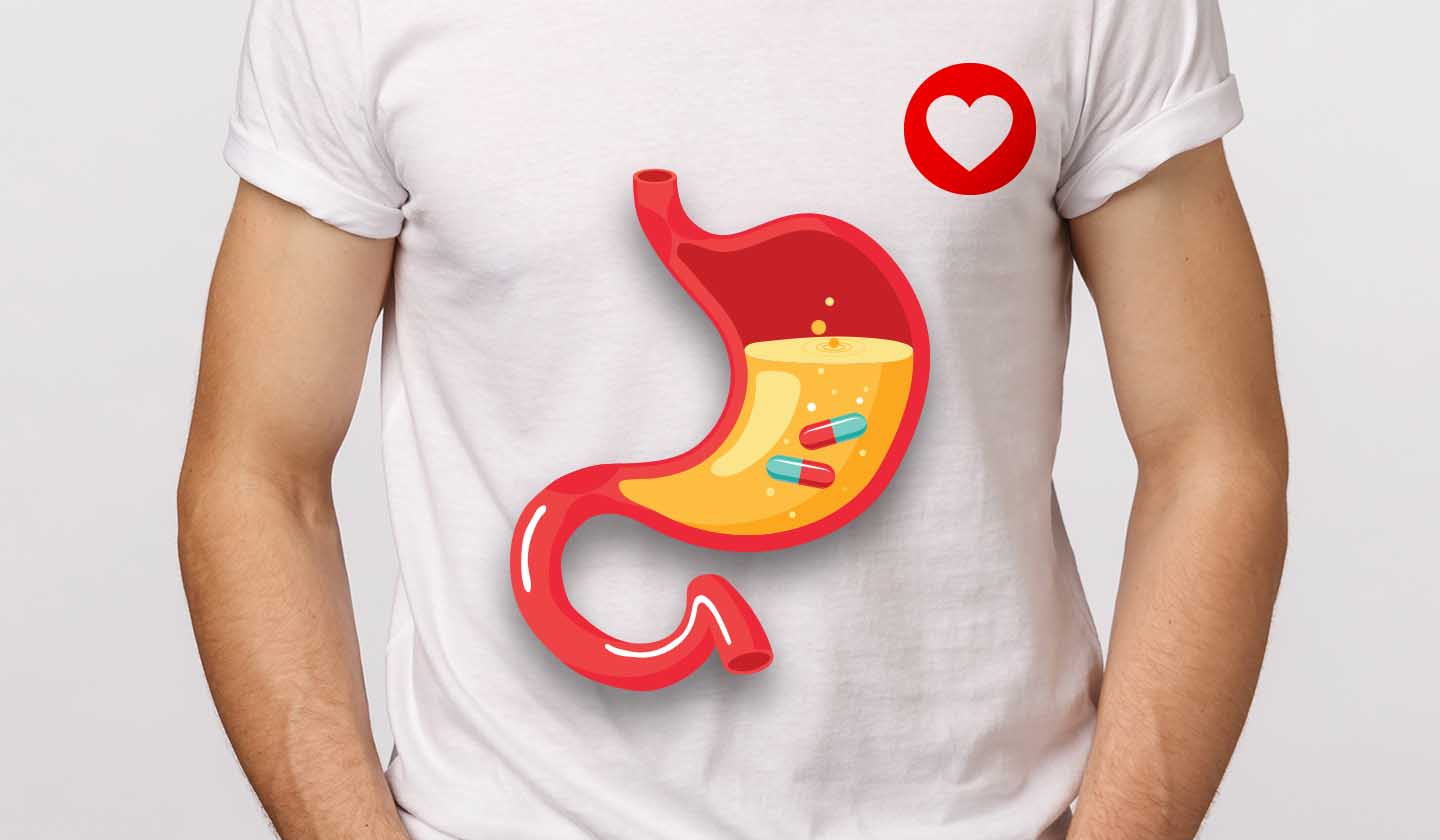Digestive system
When gastric acid is where it shouldn't be

Gastroesophageal reflux disease is a condition in which the stomach contents leak backward from the stomach into the oesophagus.
The stomach has a valve that allows food passage to the stomach and prevents it from turning backward. When this valve is not working properly or the stomach produces acid in excess, gastroesophageal reflux occurs.
What are the symptoms?
The most common symptom is heartburn (burning feeling in the central chest) which can result in an unpleasant sour taste in your mouth.
Gastroesophageal reflux symptoms are more frequent in people aged over 55, although it can also occur amongst young adults. Usually, heartburn does not occur in children.
However, this condition has other effects:
- Pain chest or upper abdomen pain;
- Food rises back up the oesophagus;
- Middle-of-the-night awakenings with a feeling of choking;
- Sore and aching throat;
- Hoarseness;
- Dry cough.

What are the risk factors?
The gastroesophageal reflux can occur in people of any age, especially after a heavy meal.
However, there are factors that can increase the risk of reflux.
Such as:
- Overweight;
- Pregnancy;
- Smoking;
- There are some foods that increase gastric acid secretion (fried food, chocolate, coffee, tea, tomato, spicy food, garlic, onion, pepper, orange, lemon, and mint;
- Alcoholic beverages and carbonated beverages;
- Some drugs (for instance, acetylsalicylic acid).

Treatment
There are some drugs that help relieving the symptoms. The treatment consists of reducing gastric acid secretion.
Drugs:
- Antacids (quick symptom relief);
- Mucosal protective agent (quick symptom relief);
- H2 receptor antagonists (block gastric acid secretion)
- Proton-pump inhibitors (prevent injury of the gastric mucosa)
Antacids should be taken after meals and they are available as lozenges, chewable tablets, dissolving tablets, oral gel and for oral suspension.
Mucosal protective agents can be found in sachets for oral suspension and as chewable tablets.
H2 receptor antagonists and proton-pump inhibitors can be found as tablets and capsules.
Medical advice should be sought in case the symptoms persist, even with clinical treatment and a lifestyle change.
How to prevent...
Lifestyle changes are an important ally to prevent suffering from gastroesophageal reflux and to improve your quality of life.
Some advices:
- Raise the head of the bed (approximately 15 cm);
- Do not lie down immediately after meals (ideally, 2 hours after meals);
- Have light meals throughout the day;
- Moderate the intake of foods that increase gastric acid secretion (mentioned above);
- Avoid smoking (or reduce the number of cigarettes smoked);
- Avoid drinking alcoholic or carbonated beverages;
- Avoid using tight clothing or belts;
- If you are overweight or obese, try to lose weight.
Keep in mind that:
If you have heartburn 3 or more times a week for over a period of 15 days, if you have difficulty when swallowing or if you are experiencing strong and persistent pain in your stomach, medical advice should be sought.
Sources
iSaúde
Farmácia Distribuição Magazine
Também lhe poderá interessar
Prevention
Your best decision ever? Stop Smoking
Respiratory system






